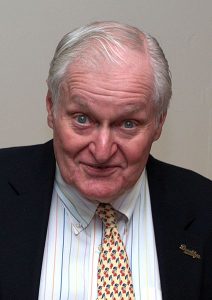Rarely does a poet capture the interest of the world’s press amid the inauguration of an American president—as the Guardian put it: Amanda Gorman “stole the inauguration show”.
Gorman addresses the president, then the first lady, Dr. Biden—with a palpable emphasis on ‘doctor’: an acknowledging doff, woman to woman—before her narrative leans seamlessly from formal address to poetry. In this swaying shift between narrative modes, Gorman presents a complex, hybrid, blended space of art and activism, politics and poetics, logos, ethos and pathos.
The seemingly natural spontaneity in a poem written both for the inaugural moment and in the moment through Gorman’s august performativity inaugurates a new power for poetry. Gorman reminds us what poetry is for; we are reminded of its rhetorical, oral roots as a form and any former schisms between worlds of high politics and of art, poetry and aesthetics seem now so slight in this new poetry for new politics—we hope.
The lexical texture of the poem is astonishing in its intricacy, as though the meshing of political and poetic fibres is somehow reflected in the consonantal weaving of the following line:
With every breath from my bronze-pounded chest, we will raise this wounded world into a wondrous one. (Gorman, 2021)
The linguistic sonority of the line pivots both accentually and alliteratively around the plangent semi-vowel ‘w’ like a plainchant—and ‘w’, being somewhat liminal in phonetic quality embodies the blended space Gorman creates in almost gospel gravitas. Her 2017 poem “In this Place: An American Lyric”, exhibits the same riffing in the key of ‘w’, and sibilant ‘s’ counter-weaves through the texture in a kind of bitonal remix of language:
There’s a poem in Los Angeles
yawning wide as the Pacific tide
where a single mother swelters
in a windowless classroom, teaching
black and brown students in Watts
to spell out their thoughts
so her daughter might write
this poem for you. (Gorman, 2017)
This molecular interweave of phonemic alliteration on the stressed and unstressed parts of the word—on their beats and their off-beats—create innovative rhymical sequences which are developed further by syncopated assonances of rhyme though the lines in unexpected distributions. The splicing of “just is” from “justice” and the morphological ‘sampling’ of “arms” to “harm” to “harmony” in her inaugural poem also destabilise and challenge the fixedness of words as their meaning blends semantically from one to the next. Just like people—society—language comes apart and then coalesces back together again.
The power of anaphora has long been the domain of both poetry and political speeches:
We will rise from the golden hills of the west.
We will rise from the wind-swept north-east where our forefathers first realized revolution.
We will rise from the lake-rimmed cities of the midwestern states.
We will rise from the sun-baked south.
We will rebuild, reconcile, and recover. (Gorman, 2021)
These are the ‘power-chords’ of a poem seeped multimodal sampling from phoneme to morpheme to phrase. The repetition of the anthemic phrase ‘we will rise’ vaults through the lines to evoke a message of solidarity and activism.
The poem comes to rest on a couplet which formally resembles the beginning of a blues stanza where the opening line is repeated by the second line with minor variation in an echo of itself:
if only we’re brave enough to see it.
If only we’re brave enough to be it. (Gorman, 2021)
It is now apparent that Gorman is accessing and gathering the whole tapestry of American poetics and political discourse to create a new poem for a new age: from the Whitmanesque listing of subjects, identities, cultures, to the blues.
Gorman has always combined the spaces between poetry and politics, art and activism, and has woven a new blended discourse of both. In 2013, inspired by the Pakistani poet laureate, Malala Yousafzai, Gorman became a youth delegate for the United Nations. In 2016, Gorman founded One Pen One Page, a non-profit programme of free creative writing workshops to foster the talent of disenfranchised young writers and future leaders.
2014 saw her own inauguration as the Youth Poet Laureate for Los Angeles, her home city, and again in 2017 as the first African-American National Youth Poet Laureate. In the same year, she opened the Library of Congress’ literary season with the poem, “In this Place: An American Lyric” to commemorate the inauguration of the United States Poet Laureate, Tracy K. Smith.
Gorman graduated from Harvard with a degree in Sociology in 2020 and is the author of two poetry collections: The One for Whom Food Is Not Enough (Penmanship Books, 2015) and the forthcoming The Hill We Climb (Viking, September 2021).
If you enjoyed Amanda Gorman’s poetry, discover other African-American women poets, like Harryette Mullen and Sonia Sanchez.







